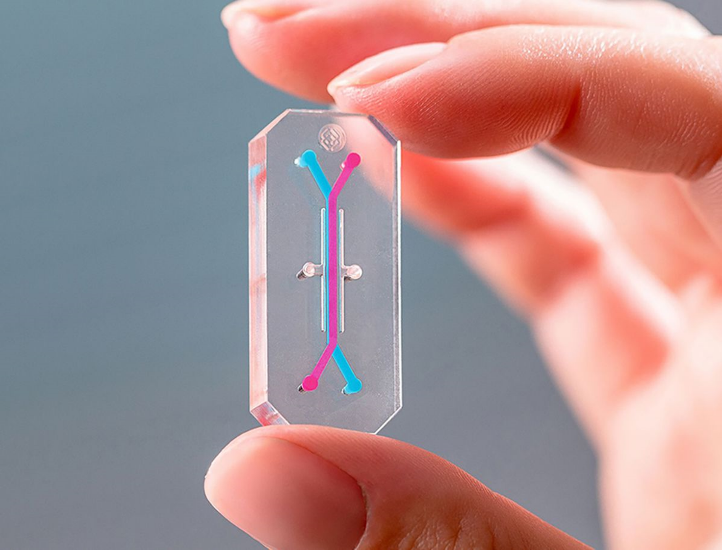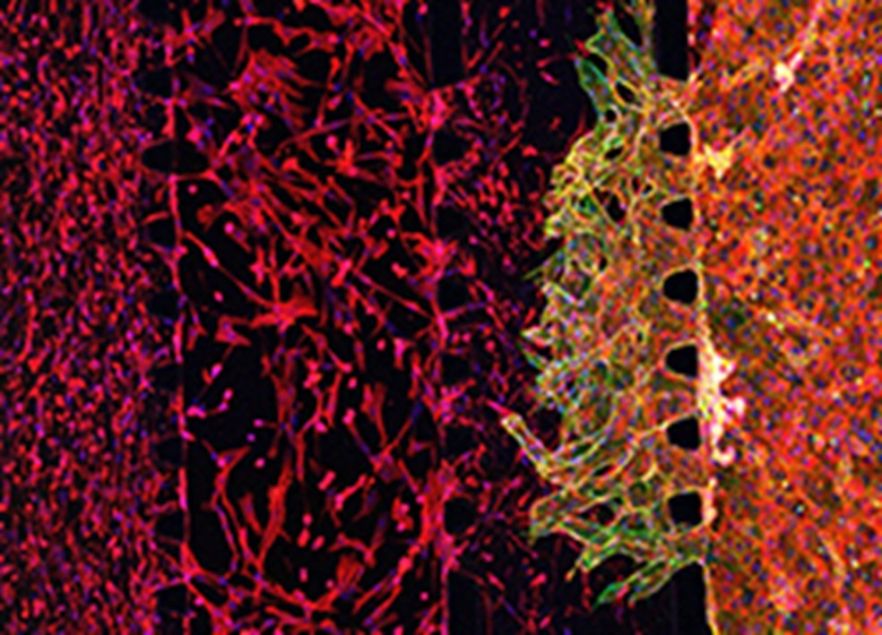Predictive in vitro Models
This rapidly expanding multidisciplinary area is set to transform pre-clinical drug testing and disease modelling, accelerating the delivery of safer, more effective new therapies for all.
Researchers within Centre for Bioengineering are leading the development of organ-on-a-chip technology and related complex in vitro models. This incorporates a wide range of model systems including 2D and 3D cell culture models, organoids, microphysiological systems, organ-on-a-chip technology, New Approach Methodologies (NAMs), Non-Animal Technologies (NATs), and other types of in vitro model. also referred to as microphysiological systems.
This multidisciplinary activity is coordinated through Queen Mary's cross-faculty Centre for Predictive in vitro Models. This provides a beacon of research, training, and translation with over 70 academic staff focusing on the development and use of predictive in vitro models. The centre includes a extensive affiliates club with representatives from over 50 organisations including regulatory authorities, pharmaceuticals and healthcare industry, technology providers, and other stake holders.
Our vision is to facilitate the implementation of innovative in vitro models for highest quality discovery science and to accelerate delivery of safe and effective therapeutics for the benefit of wider society.

Emulate S1 organ-chip

Confocal image showing cells within an organ-chip

